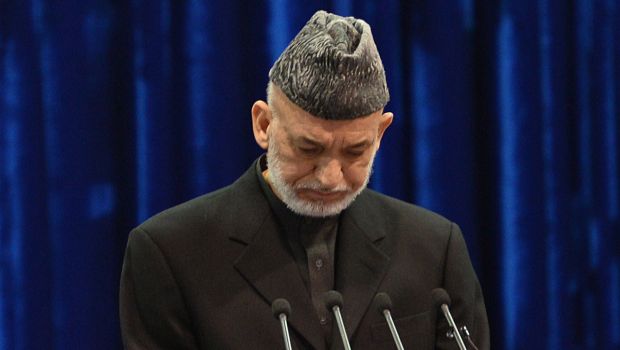For a man who became President of Afghanistan and held the post for 11 years and counting pretty much entirely through US support, Hamid Karzai is giving his American backers a very hard time.
With just six months to go until the presidential election in Afghanistan, Karzai is not keen to sign the security deal with the US despite overwhelming public support for the agreement.
Karzai, who enjoyed essentially unquestioned support from former US President George W. Bush, found himself in a difficult position once Obama took office.
Karzai was accused of having the world’s most corrupt administration, a dubious honor shared with North Korea and Somalia. He has done nothing to combat that: some of his close relatives are among the people accused of the most serious corruption.
And to focus on corruption alone is to forget that Karzai has done very little to fight terrorism or opium trading.
Despite years of international effort to scale back Afghanistan’s opium culture, cultivation and production hit record levels this year. Programs to counteract the reliance on poppy crops have floundered, according to a new UN study.
Looking back at their own history, Afghans can predict what will happen to them in the absence of a powerful central government and working national army without US troops present on the ground.
While the whole world talks about Iran’s nuclear program and the threat it might pose to global security—that is, if it’s proven to not be peaceful—it ignores the fact that Afghanistan will be the foremost terrorist threat if the world doesn’t pay attention to the upcoming election there.
President Karzai has said that he won’t sign the security agreement unless all the issues he has with it are addressed, saying he has to put his country’s national interests first. He has been driving the Americans crazy with this, because they feel like time is running out if they are to secure a deal with Afghanistan before the election.
After squabbling with the Americans over this deal for months, Karzai finally announced he would send the document to 2,500 of Afghanistan’s elders and provincial and tribal leaders in the Loya Jirga.
That tribal assembly, which has been called twice since 2001, has dubious constitutional authority. In fact, some people are saying that calling up the Loya Jirga is unconstitutional.
On the first day of the assembly, November 21, Karzai claimed that the Loya Jirga would merely be giving him advice on the security deal, and that its decision would have to be given final approval by parliament. Basically, he contradicted himself.
It was painfully, obviously clear to frustrated Afghans, who are all worried about the security issue, that Karzai could have just quietly signed the deal with the US without kicking up such a fuss.
But if it could have been so easy for President Karzai to just sign it, why is he playing with the Americans, and what is his real reason for creating this delay as Afghanistan heads into elections next April?
It’s interesting to note that President Karzai said something else—something illuminating—at the opening of the Loya Jirga on Thursday: He said he would only sign the security deal after the elections.
What Karzai said was really a message to the Americans that they should take his side and be gentle with him if they want to stay in Afghanistan after 2014.
He is projecting his power and influence past next year’s elections. His brother, Quayum, is a presidential candidate, and Hamid appears to be paving the way for his sibling.
The security deal has two main provisions. One is that a number of US troops will remain in Afghanistan beyond 2014 to train and support Afghan troops. The other is that the Americans can engaging in limited counter-terrorism operations.
Perhaps what Karzai is really asking for is US engagement with the election in favor of his brother—his price for signing the agreement.
